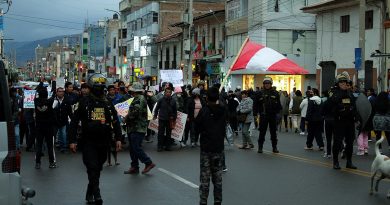Afghan Government Left Out of Intra-Afghan Negotiations
Joshua Newman
Staff Writer
On Tuesday, February 5, it appeared that the war in Afghanistan was finally moving towards a peaceful conclusion. Representatives of the Taliban and key Afghan political figures, like former President Hamid Karzai, met in Moscow for two days in another step forward in resolving Afghanistan’s 17 year long war. Despite this, there were no Kabul government officials according to ABC News.
The Wall Street Post reports that the Afghan government under President Ashraf Ghani was invited to the talks, but instead declined to attend. Their first reason for not attending was that there were no face-to-face talks with the Taliban. The other reason was that the Afghan government feared that the presence of their political rivals would put them on equal footing, which would be a serious legitimacy issue. Key opposition figures who attended include Afghanistan’s political rivals such as former President Hamid Karzai, Ghani’s former national security adviser and main rival in the recent presidential election Hanif Atmar, as well as key factional leaders like Ismail Khan, Mohammed Mohaqeq, and Atta Mohammad Noor.
The Taliban had their own reasons for not wanting to talk to the Afghan government, reports The Washington Post. They see the current government in Kabul as a United States puppet and therefore, as illegitimate. Two Afghan Daily News reporters, quoted by The Washington Post, have stated that Kabul’s absence “isolates Ghani” and “sabotages the authority of the government.”
However, despite this negativity there appears to be real hope that the war in Afghanistan is closer to ending than ever before. Al Jazeera reports that despite Kabul’s complaints, the politicians who attended the meeting in Moscow saw it as a continuation of peace efforts. These talks follow progress made by the United States and Taliban in Qatar. Negotiations there seemed to be a step toward moving American and other foreign troops out of Afghanistan. According to The Washington Post, these talks were carried out by Taliban members and U.S. Special Envoy Zalmay Khalilzad amid a renewed push by U.S. President Donald Trump to bring home American troops.
Despite this progress, the lack of Afghan government representation is going to leave a bitter taste in Kabul’s mouth and it may also hamper further peace talks. Al Jazeera reports that Fazel Fazly, the chief adviser to President Ashraf Ghani, said in a tweet “[They] are ready to bypass these principles and move towards [the principles’] destruction due to differences and being away from power.”
President Ghani’s office also had something to say. As per Al Jazeera, they stated that opposition leaders were only attending the talks “in order to gain power.”. President Ghani has also been irritated by Special Envoy Khalilzad’s talks with the Taliban and with other countries in the region.
These talks come during a still very contentious time within Afghanistan. Put together by the Moscow based Council of Afghan society, an Afghan diaspora organization, the talks hope to help bring an end to the longest war of the 21st Century. According to Al Jazeera, the Taliban, despite being thrown out by U.S. troops in 2001, are in control or contest districts in nearly half the country. The most recent quarterly report issued by the U.S. Special Inspector General for Afghanistan Reconstruction puts the situation on the ground as such. Of the 407 districts in Afghanistan, 53.8 percent are under the control of the Afghan government. This amounts to 63.5 percent of the population with the Taliban controlling the rest
Many fear that the Taliban is only biding its time, and though there is still hope for peace, Afghanistan is certainly in a precarious situation. According to Associated Press, a new U.S. watchdog report says that Afghan security forces are weakening and that there are gaps in the security that continue to grow. However, the Taliban continues to hold its own even under intense U.S. bombardment. It only raises the question of who are these talks serving. If the U.S. agrees to terms with the Taliban and withdraws, what will be the fate of the Afghan people?

